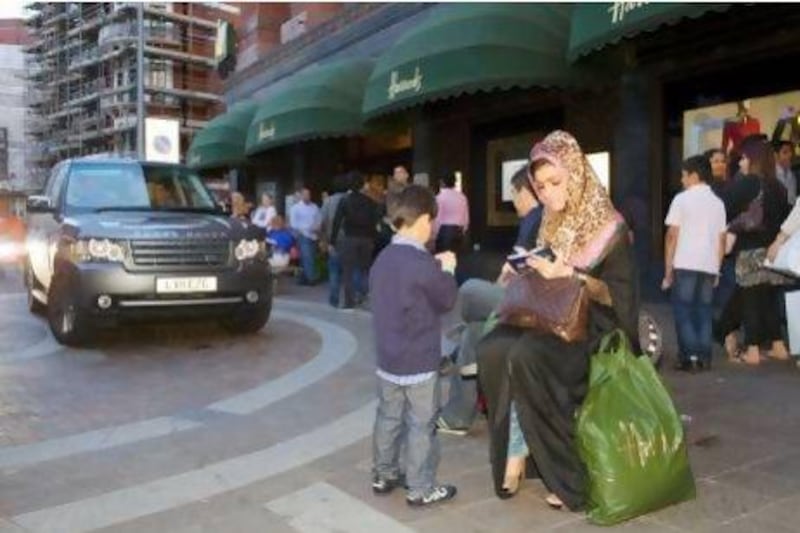A new breed of wealthy and younger Middle East shoppers is flocking to Harrods, the "top people's store" in London's wealthy Knightsbridge, as three years of investment by its Qatari owners take effect.
"The growth market now is from the Middle East, China and South East Asia. The Americans have probably fallen out of the top 10 ratings," said Katharine Witty, the store's group director of corporate affairs.
"There's no particular reason we can see why American numbers are falling, but we just know the growth is from elsewhere." Qatar Holdings, which bought Harrods in 2010 for £1.5 billion (Dh8.47bn at current conversion rates), said figures on the nationality of shoppers were confidential and for internal consumption only - but the store does say that visitors from the UAE and Saudi Arabia are among the top-spending Middle Eastern nations using the store.
There had also been steady growth from the Middle Eastern market in both volume of transactions and sales.
"We are witnessing increased growth in a new and younger Middle Eastern customer.
"While this growth is organic, we attribute this to our evolving service, brand and product offering," Ms Witty said.
"In terms of their shopping habits, they tend to seek out the latest exclusive and limited-edition products. Preferred brands include Chanel, Hermès, Cartier, Prada and Louis Vuitton across the fashion, fine jewellery, accessories and beauty departments," she added.
But British shoppers still constituted the majority of Harrods visitors, she insisted.
Last year Qatar Holding invested more than £100 million in the store, its supply chain and franchises.
Profit figures are not disclosed as Harrods is a private company, but revenue rose 11 per cent to £651m. Ms Witty predicted "double-digit growth" again this year.
Chinese shoppers are also increasingly attracted to the store, and constitute the single biggest foreign group by nationality.
Harrods' direct appeal to Qatari shoppers has so far been restricted to two projects: an in-house booking desk for Qatar Airways, and In-Q, a themed coffee shop and patisseries.
"We'd like to think we can offer Qataris a home from home. We're seeing a lot more visitors from Qatar and the rest of the Middle East, even though we haven't done much marketing there," said Ms Witty.
Harrods lost its "by royal appointment" endorsement from the British monarchy during the turbulent years of the previous owner, Mohamed Al Fayed, but there are hopes it might be won back.
One Harrods insider said: "Maybe, why not? The Qataris have got good relations with our royals, and royals from all round the world visit the store. Royalty has always been part of our customer base."
Nor does Harrods seem worried about the local competition. "Harvey Nichols [a rival upmarket department store in Knightsbridge] would fit into one floor of Harrods," said Ms Witty.





